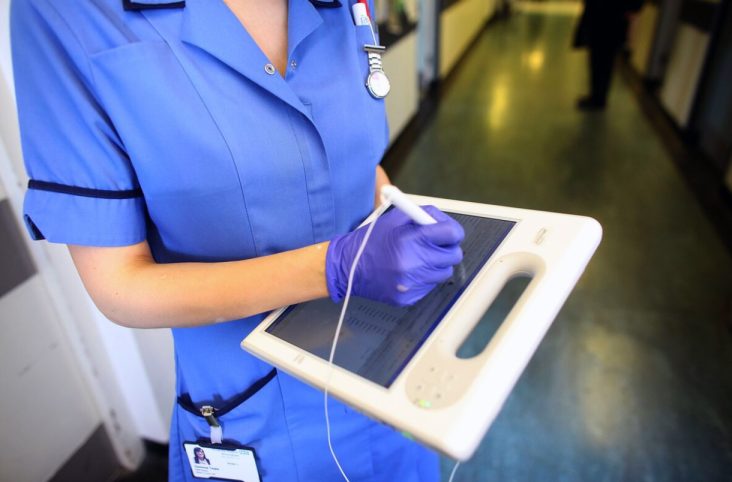In recent times, the intersection of artificial intelligence (AI) and healthcare has ignited a flurry of excitement among top venture firms and tech investors. The promise of AI-driven innovations, coupled with the widespread fascination with AI-driven models like ChatGPT, suggests a profound transformation in the healthcare landscape. After years of Silicon Valley grappling with healthcare complexities, we are now at the cusp of a transformative journey.
Related: How do heart attacks affect women differently than men?
Leading the charge in this healthcare AI revolution is Andreessen Horowitz, with a robust portfolio of startups geared towards enhancing medical care. These companies harness AI to streamline patient care, alleviate the burden of clinical note-taking, and expedite drug discovery processes. A recent noteworthy investment saw Andreessen Horowitz co-lead a $200 million funding round for Genesis Therapeutics, a pioneer in AI-powered drug discovery. Joining the fray are General Catalyst, Menlo Ventures, Lux Capital, and other prominent players, all contributing to the surge in AI healthcare startups.
This fervor isn’t confined to venture firms alone; tech giants such as Microsoft, Amazon, and Google are aggressively expanding their presence in the lucrative healthcare sector. Amazon introduced HealthScribe, a generative AI tool designed to assist healthcare providers in summarizing doctor’s visits, while Google is reportedly testing a medical chatbot for use in hospitals.
However, the healthcare industry, notorious for its regulations and reliance on outdated technology like fax machines, has historically posed formidable challenges for tech companies. IBM’s divestment of Watson Health assets last year and Amazon’s high-profile healthcare disruption attempt with JPMorgan Chase & Co and Berkshire Hathaway Inc. serve as poignant reminders of these challenges. Moreover, large language models like ChatGPT, while impressive, can sometimes provide inaccurate information – a critical issue in high-stakes healthcare scenarios.
Related: How does Alzheimer’s disease progress differently in women compared to men?
Vijay Pande, a general partner at Andreessen Horowitz, acknowledges the previous AI hype cycles in healthcare but insists that the current landscape is fundamentally different. Advancements in AI technology have significantly improved, and as with the internet’s evolution, substantial changes take time. Pande likens today’s state of AI in healthcare to the internet’s state in 2005 – a transformative force gradually permeating everyday life.
While investments in AI startups have soared across various sectors, AI healthcare startups have faced a more complex funding landscape. They are trailing behind last year’s $7.4 billion in funding and well below the $10.5 billion raised in 2021, according to PitchBook data. Deena Shakir, a general partner at Lux Capital, acknowledges the buzz around AI in healthcare but believes it’s still too early to gauge its true impact.
Here are the healthcare domains where tech investors anticipate significant progress:
1. Drug Discovery:
AI is poised to accelerate drug discovery processes by analyzing extensive datasets. Rezo Therapeutics, a startup specializing in cancer treatments, secured $78 million in funding, signaling the growing enthusiasm among investors. Rezo aims to bridge the gap between academia and biotech, translating research from multiple labs into therapies. Other startups, such as Insitro, are also utilizing AI for drug development, focusing on diseases like fatty liver disease and tuberous sclerosis complex.
2. Paperwork:
Generative AI, capable of producing written content, is now being applied to healthcare, aiming to alleviate administrative burdens. Ambience Healthcare, for example, offers an AI-powered “scribe” that transforms doctor-patient conversations into notes, saving clinicians approximately 16 hours per week. Similar clinical note services are offered by Microsoft, Amazon, and Doximity. However, some AI services have encountered errors, necessitating human intervention.
3. Diagnoses:
While there’s a shortage of doctors in the US, AI won’t replace physicians just yet. Concerns persist about relying too heavily on AI for triage, potentially leading to missed or misdiagnosed issues. Hippocratic AI recently secured $50 million to develop large language models tailored to the healthcare industry. The focus remains on tasks like explaining pre-operation instructions to patients, steering clear of medical diagnoses until the models are deemed safe.
The marriage of AI and healthcare is on the brink of a revolution. As technology continues to evolve, it holds the promise of reshaping patient care, expediting drug discoveries, and easing administrative burdens. While challenges persist, the momentum is undeniable, and the potential for transformative change is more tangible than ever before.


